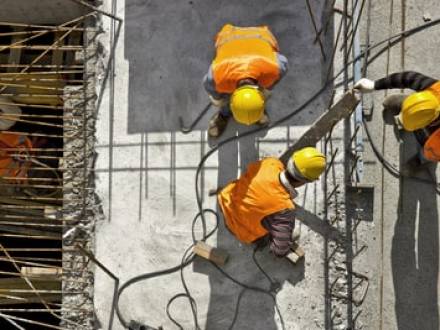Recent Blog Posts
Can I Get California Workers’ Compensation for Workplace Stress?
 Most workers are aware they are entitled to receive workers’ compensation benefits following a workplace injury or illness. In some states, a worker whose job has caused them emotional or mental trauma, including stress, anxiety, PTSD, and depression, can also receive workers’ compensation benefits.
Most workers are aware they are entitled to receive workers’ compensation benefits following a workplace injury or illness. In some states, a worker whose job has caused them emotional or mental trauma, including stress, anxiety, PTSD, and depression, can also receive workers’ compensation benefits.
Some states do not allow workers’ compensation benefits for mental trauma under any circumstances, while others may require an accompanying compensable physical injury. Although a psychological workplace injury may be allowed in some states, it will be denied when the injury results from a good-faith disciplinary action. California allows workers’ compensation claims for mental health issues when the worker has sufficient evidence to prove the issue is work-related.
Mental health issues are just as real as physical injury and trauma. When a work situation has been so toxic that conditions like stress, anxiety, and depression result, workers’ compensation should cover necessary treatments and time away from work. Having an experienced Hollister workers’ compensation attorney to answer questions and act as a guide throughout the process is essential. A skilled workers’ compensation attorney will ensure the worker’s rights are fully protected throughout the claim process.
Are Construction Workers Entitled to Workers’ Compensation?
 Wages and benefits resulting from a job are meant to provide workers with economic stability and insurance coverage in the event of a workplace accident. Every state except Texas mandates that employers must carry workers’ compensation insurance. Yet many employers try to circumvent these rules by misclassifying employees as independent contractors.
Wages and benefits resulting from a job are meant to provide workers with economic stability and insurance coverage in the event of a workplace accident. Every state except Texas mandates that employers must carry workers’ compensation insurance. Yet many employers try to circumvent these rules by misclassifying employees as independent contractors.
This misclassification deprives workers of core rights and protections while shifting costs and risks to workers who may barely be getting by financially. It is estimated that between 10 and 30 percent of all employees are misclassified as independent contractors.
Construction workers are often misclassified as independent contractors, even though they meet virtually none of the requirements. Following a workplace accident on a construction site, a construction worker may be told they are not covered by workers’ compensation.
How Do You Apply for a Workers' Comp Appeal?
 Trying to navigate California's workers' compensation system can be challenging, especially when your initial claim is denied. Understanding the appeal process is crucial for protecting your rights and securing the benefits you deserve. A California lawyer will walk you through the steps of applying for a workers' compensation appeal.
Trying to navigate California's workers' compensation system can be challenging, especially when your initial claim is denied. Understanding the appeal process is crucial for protecting your rights and securing the benefits you deserve. A California lawyer will walk you through the steps of applying for a workers' compensation appeal.
Find Out the Reason for Denial
Before initiating an appeal, review the denial letter carefully. Common reasons for denial include:
- Missed deadlines.
- Disputes over the injury's work-relatedness.
- Insufficient medical evidence.
- Employer contestation of the claim.
Identifying the specific reason for denial will help you prepare a stronger appeal.
The Appeal Process
The appeal process begins with filing an Application for Adjudication of Claim with the Workers' Compensation Appeals Board (WCAB). This form officially opens your case with the WCAB. File it within one year of your injury date or last benefits payment, and submit it to the WCAB office in the county where you live or where the injury occurred. Include all relevant documentation, such as medical reports and employment records.
Discrimination in Workers’ Compensation Claims
 Discrimination in workers’ compensation claims is a serious issue that can have significant consequences for injured workers. If you believe that you have been subjected to discrimination during the process of filing a workers’ compensation claim in California, it is helpful to understand your rights and take appropriate action. A California lawyer can guide you in recognizing discrimination in your case and the steps you can take to protect your rights.
Discrimination in workers’ compensation claims is a serious issue that can have significant consequences for injured workers. If you believe that you have been subjected to discrimination during the process of filing a workers’ compensation claim in California, it is helpful to understand your rights and take appropriate action. A California lawyer can guide you in recognizing discrimination in your case and the steps you can take to protect your rights.
How to Recognize Discrimination in Your Case
Discrimination in workers’ compensation claims can take many forms. Some common examples include:
- Denial of benefits based on race, gender, age, or other protected characteristics
- Retaliation for filing a claim, such as demotion, termination, or harassment
- Falling short in providing reasonable accommodations for a disability resulting from a work-related injury
How to Increase Your Chances of Getting Workers' Compensation for Hearing Loss
 You may be eligible for workers' compensation benefits if you experience hearing loss due to your job. However, navigating the claims process can be challenging. To improve your chances of receiving the compensation you deserve, consider following the advice of a California lawyer.
You may be eligible for workers' compensation benefits if you experience hearing loss due to your job. However, navigating the claims process can be challenging. To improve your chances of receiving the compensation you deserve, consider following the advice of a California lawyer.
Document Your Exposure to Loud Noise
One of the most crucial aspects of a successful hearing loss workers' compensation claim is demonstrating that your hearing loss is work-related. Keep a detailed record of your exposure to loud noise on the job, including the dates, times, and duration of exposure. If possible, measure the noise levels using a decibel meter or ask your employer to provide noise level data.
Get a Professional Hearing Evaluation
To prove the extent of your hearing loss, you should undergo a professional hearing evaluation by a licensed audiologist or ENT (ear, nose, and throat) specialist. Make sure to inform the medical professional that your hearing loss is connected to your work, which will be significant for your claim. Keep copies of all medical records and test results related to your hearing loss.
What Union Workers Need to Know About Job Injuries
 Being a union worker comes with many protections and benefits, but workplace injuries can still happen. If you get hurt on the job, you should understand your rights under California’s workers’ compensation system. A California lawyer can share some key information that can benefit you as a union worker.
Being a union worker comes with many protections and benefits, but workplace injuries can still happen. If you get hurt on the job, you should understand your rights under California’s workers’ compensation system. A California lawyer can share some key information that can benefit you as a union worker.
Report Your Injury Right Away
No matter how minor an injury may seem, always report it to your supervisor or union representative immediately. California law requires notifying your employer within 30 days, but it is best not to wait that long. Prompt reporting helps document what happened and protects your eligibility for workers’ comp benefits. Do not brush off aches, pains, or “small” injuries, as these can worsen over time.
See a Doctor You Trust
After reporting the injury, your employer should offer you a workers’ comp claim form and authorize medical treatment, even if they are unsure the injury is work-related. In an emergency, get care right away. Otherwise, find out if your employer has a Medical Provider Network (MPN) for work injuries. With most MPNs, you can choose your own physician after the first visit. If there is no MPN, you have more flexibility in selecting a treating doctor. Choose someone you are comfortable with who has experience treating your type of injury.
Work Injuries Caused by Equipment Failure
 Workers in all types of jobs can find themselves trying to recover from injuries caused by accidents at their workplace. Some jobs have a higher risk of injury, like firefighters, professional athletes, and shooting range workers. Others have a seemingly lower risk, including office workers, music teachers, and call center phone operators. Regardless, every single job on the planet has some degree of risk of injury because every job has its own environment and other factors that can influence workplace safety. One common cause of significant workplace injury that could result in granting the injured employee workers’ compensation is equipment failure. If you were injured at your work because of faulty equipment, speak with a skilled Morgan Hill, CA workers’ compensation attorney to understand your rights and options.
Workers in all types of jobs can find themselves trying to recover from injuries caused by accidents at their workplace. Some jobs have a higher risk of injury, like firefighters, professional athletes, and shooting range workers. Others have a seemingly lower risk, including office workers, music teachers, and call center phone operators. Regardless, every single job on the planet has some degree of risk of injury because every job has its own environment and other factors that can influence workplace safety. One common cause of significant workplace injury that could result in granting the injured employee workers’ compensation is equipment failure. If you were injured at your work because of faulty equipment, speak with a skilled Morgan Hill, CA workers’ compensation attorney to understand your rights and options.
Risks That Delivery Drivers Should Look Out For
 There are plenty of reasons why people seek jobs as delivery drivers. They get to earn an honest living while out on the road instead of being stuck inside a stuffy office, dress comfortably, and listen to things they like while getting their job done. However, the job certainly comes with its own set of risks. Delivery drivers are at a higher risk for a variety of accidents and injuries that could result in costly medical care and recovery. If you are a delivery driver, it is important to understand the types of risk you face and how workers’ compensation can help. This article will examine some common causes for delivery driver injuries, but if this is personally relevant to you, an experienced California driver injury attorney can help you navigate the process of getting compensated for your expenses.
There are plenty of reasons why people seek jobs as delivery drivers. They get to earn an honest living while out on the road instead of being stuck inside a stuffy office, dress comfortably, and listen to things they like while getting their job done. However, the job certainly comes with its own set of risks. Delivery drivers are at a higher risk for a variety of accidents and injuries that could result in costly medical care and recovery. If you are a delivery driver, it is important to understand the types of risk you face and how workers’ compensation can help. This article will examine some common causes for delivery driver injuries, but if this is personally relevant to you, an experienced California driver injury attorney can help you navigate the process of getting compensated for your expenses.
Common Causes of Delivery Driver Injuries
There are a large number of things that can cause delivery drivers to get injured at work. Some of the most common include:
Can My Age Affect My Eligibility for Workers’ Compensation?
 The state of California has prioritized workers’ rights, with many laws protecting all types of workers in almost every field imaginable. When someone gets injured while performing their job or at their place of work, they are generally eligible for workers’ compensation benefits, which would cover the expenses of their recovery. Unfortunately, not all workers are aware of what they are entitled to in such cases. Even if their employer has made sure to distribute information to all employees about what they can do if they have a workplace injury, insurance companies prefer paying less than the employee is entitled to, or nothing at all, so it can be difficult getting all the relevant information.
The state of California has prioritized workers’ rights, with many laws protecting all types of workers in almost every field imaginable. When someone gets injured while performing their job or at their place of work, they are generally eligible for workers’ compensation benefits, which would cover the expenses of their recovery. Unfortunately, not all workers are aware of what they are entitled to in such cases. Even if their employer has made sure to distribute information to all employees about what they can do if they have a workplace injury, insurance companies prefer paying less than the employee is entitled to, or nothing at all, so it can be difficult getting all the relevant information.
Sometimes, insurance companies might even try to intimidate or manipulate injured employees and try to make them think that their age or other factors can affect their eligibility for workers’ compensation. If you get hurt at work, the best thing you can do is consult with an experienced Gilroy, CA workers’ compensation lawyer who can arm you with comprehensive knowledge about everything you are entitled to.
Workers Compensation for Shoulder Injuries in California
 People can suffer from a large variety of injuries at work. When that happens, they are generally eligible for workers’ compensation to cover the costs related to the injury. That can include medical bills and other costs associated with treatment and recovery as well as lost income when the employee could not come to work and potentially lost wages and earning capacity if the injury makes him unable to function in the job he used to have. One common type of workplace injury that will be explored in this article is an injury affecting the shoulder. If you suffered a work injury, speak with a skilled Hollister, CA workers’ compensation attorney to find out how to proceed.
People can suffer from a large variety of injuries at work. When that happens, they are generally eligible for workers’ compensation to cover the costs related to the injury. That can include medical bills and other costs associated with treatment and recovery as well as lost income when the employee could not come to work and potentially lost wages and earning capacity if the injury makes him unable to function in the job he used to have. One common type of workplace injury that will be explored in this article is an injury affecting the shoulder. If you suffered a work injury, speak with a skilled Hollister, CA workers’ compensation attorney to find out how to proceed.
Common Workplace Shoulder Injuries
Workplace injuries can happen to people who have more physical jobs - for example, military personnel, construction workers, dancers, and athletes - and those who have more sedentary jobs like office workers, computer coders, and manicurists. That is why these injuries can happen in such a variety of ways and cause varying degrees of damage. Some of the most common shoulder-related workplace injuries include:








